- Get link
- X
- Other Apps
Its important to note that emerging research shows that people might be most likely to spread the virus to others during the 48 hour time period before they begin having symptoms. According to a recent report more than 97 percent of people who contract SARS-CoV-2.
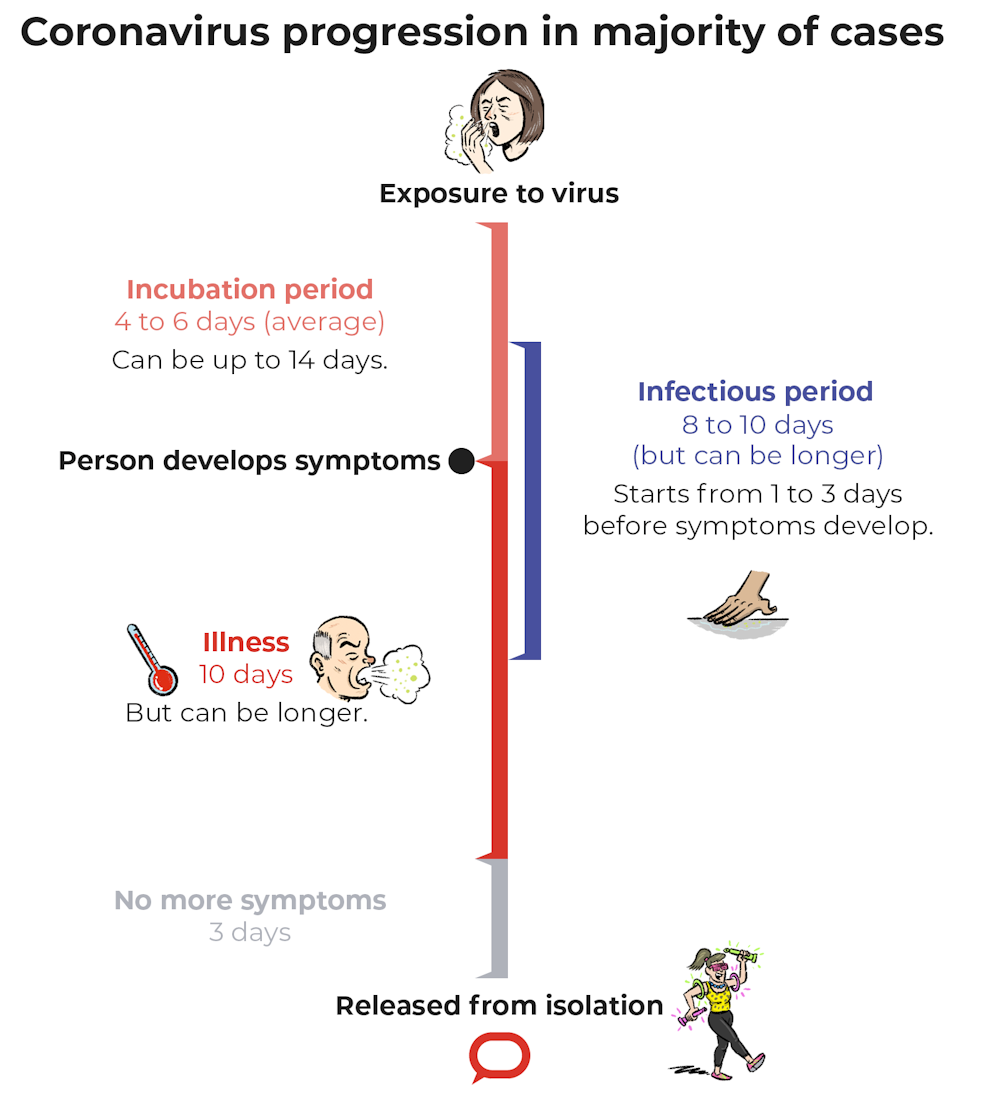 How Long Are You Infectious When You Have Coronavirus
How Long Are You Infectious When You Have Coronavirus
The Centers for Disease Control.
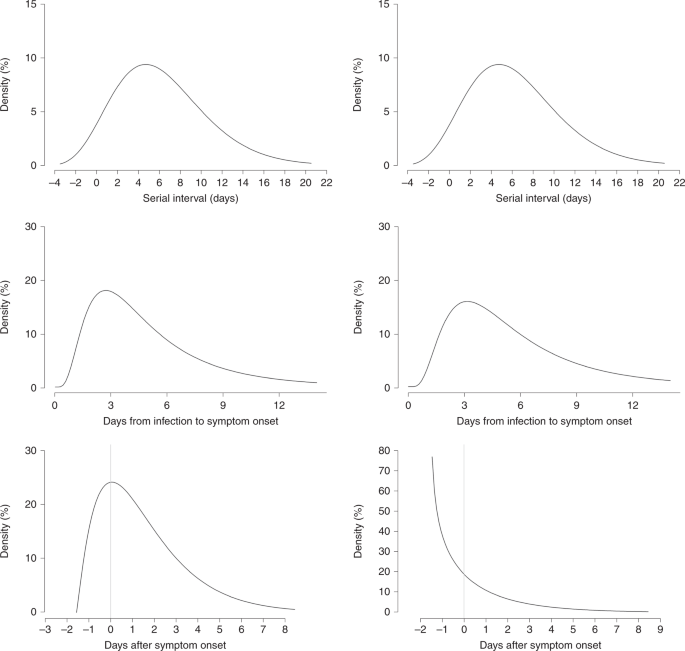
How long from exposure to symptoms. People with these symptoms may have COVID-19. Researchers point out two things however. The incubation period for the novel coronavirus is somewhere between 2 to 14 days after exposure.
Its recommended that you wait to get tested for at least two to three days after potential exposure. Although for many symptoms resolve after two to three weeks a sizeable percentage of people seem to have continuing symptoms long after the. However most people will start to experience symptoms within four or five days of exposure.
However studies have shown that symptoms could appear as soon as three days after exposure to as long as 13 days later. Most peoples symptoms appear around day five on average. The incubation period is the time between the exposure to a virus or bacteria and the appearance of symptoms.
This is based on a study done in Wuhan China where the pandemic started. The study found that the median incubation period was 51 days and that 975 of people with symptoms will develop these within 115 days. Its so important to stay away from people during this time because you could start to develop symptoms within two to 14 days after exposure and can still be.
Those researchers concluded that about 44 percent of COVID-19 infections spread from person to person before symptom onset. Symptoms may appear 2-14 days after exposure to the virus. The time from exposure to symptom onset known as the incubation period is thought to be two to 14 days though symptoms typically appear within four or five days after exposure.
If a person has never had scabies before symptoms may take 4-8 weeks to develop. Anyone can have mild to severe symptoms. But the average time before showing symptoms is thought to be 5 days.
However its possible to develop symptoms as soon as 10 to 12 hours after exposure. However symptoms may not appear for a full two weeks in some patients. The median incubation period of COVID-19 from exposure to the onset of symptoms is 51 days researchers say meaning the recommended 14-day quarantine period is a reasonable amount of time to monitor individuals for development of the disease.
It is important to remember that an infested person can spread scabies during this time even if heshe does not have symptoms yet. In a person who has had scabies before symptoms usually appear much sooner 1-4 days after exposure. The time from exposure to the onset of symptoms is around two to 14 days according to Harvard Health.
People with these symptoms may have COVID-19. The CDC currently recognizes the COVID-19 incubation period as 2 14 days after exposure. Anyone can have mild to severe symptoms.
Another study which looked at 77 pairs of individuals in which one person infected the other found that contagiousness both began and peaked before the first symptoms of illness 23 days and 07 days respectively. We know that a person with COVID-19 may be contagious 48 hours before starting to experience symptoms. By 12 days after exposure the majority of people who are going to have symptoms will have begun to experience them.
On average the time from exposure to symptom onset known as the incubation period is about five to six days. Cold symptoms peak at 1 to 3 days. The main symptoms include sore throat stuffy nose runny nose cough discomfort sneezing fever more common in children headaches clear watery discharge from your nose mucus and body aches.
Early COVID symptoms can develop as soon as two days after exposure to COVID. Since the incubation period is 14 days those who were infected should expect the following symptoms unless you are asymptomatic. How long is it between when a person is exposed to the virus and when they start showing symptoms.
If we figure that infected people who become sick typically start experiencing symptoms a bit more than five days after exposure we can calculate that infectiousness would on average begin rising sharply about three days post exposure. Fever or chills Cough Shortness of breath or difficulty breathing Fatigue Muscle or body aches Headache New loss of.
What To Do If You Do Not Have Symptoms Of Covid 19 But Have Been Exposed Medical Services University Of Colorado Boulder
 Evidence For Transmission Of Covid 19 Prior To Symptom Onset Elife
Evidence For Transmission Of Covid 19 Prior To Symptom Onset Elife

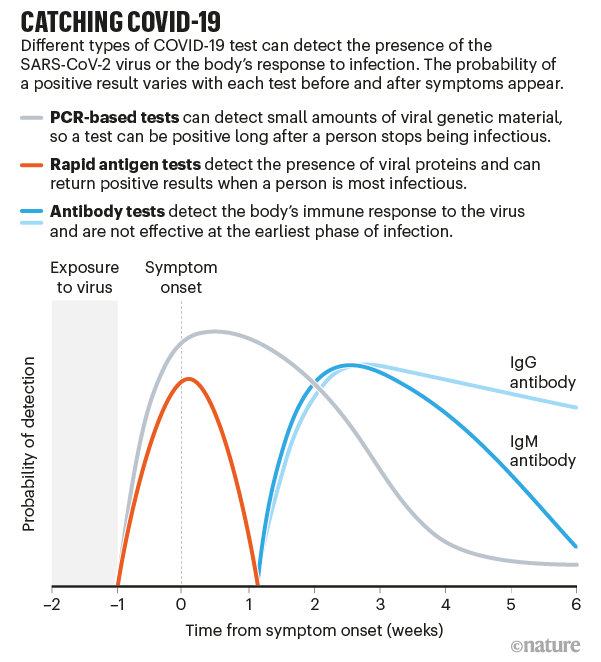 Fast Coronavirus Tests What They Can And Can T Do
Fast Coronavirus Tests What They Can And Can T Do
 How Contagious Is The Cold And Flu
How Contagious Is The Cold And Flu

 What You Should Know About Quarantine Osf Healthcare
What You Should Know About Quarantine Osf Healthcare
 Epidemiology And Transmission Of Covid 19 In 391 Cases And 1286 Of Their Close Contacts In Shenzhen China A Retrospective Cohort Study The Lancet Infectious Diseases
Epidemiology And Transmission Of Covid 19 In 391 Cases And 1286 Of Their Close Contacts In Shenzhen China A Retrospective Cohort Study The Lancet Infectious Diseases
How Long Am I Contagious Covid 19 Vs Flu Vs Common Cold
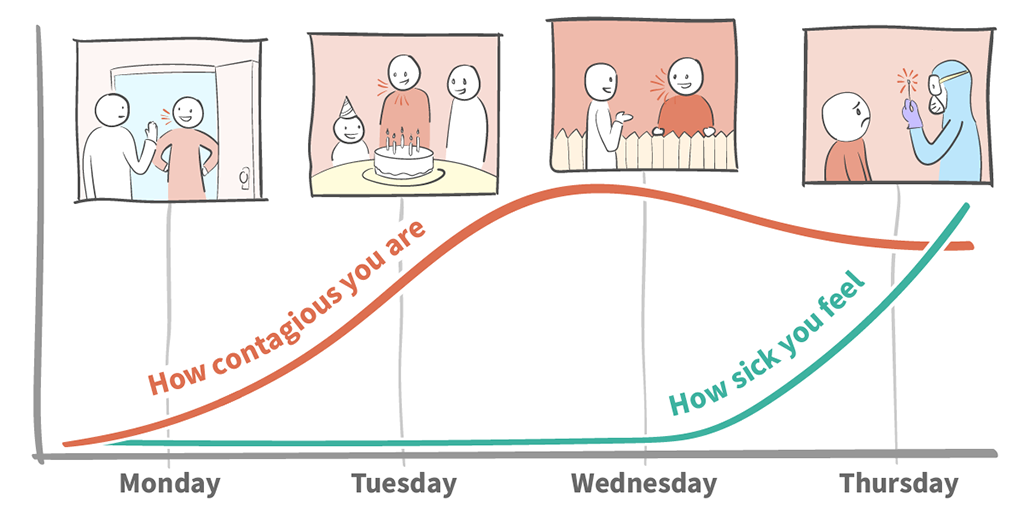 How Long Before Symptom Onset Is A Person Contagious Mit Medical
How Long Before Symptom Onset Is A Person Contagious Mit Medical
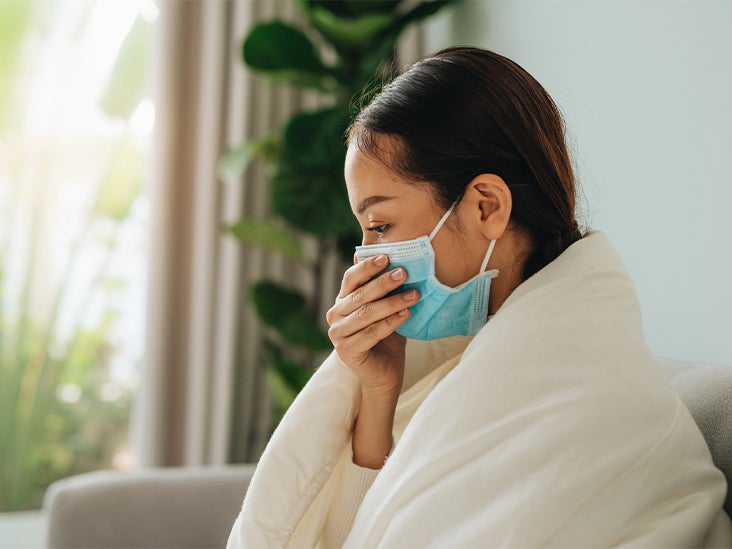 Coronavirus Incubation Period How Long Before Symptoms Appear
Coronavirus Incubation Period How Long Before Symptoms Appear
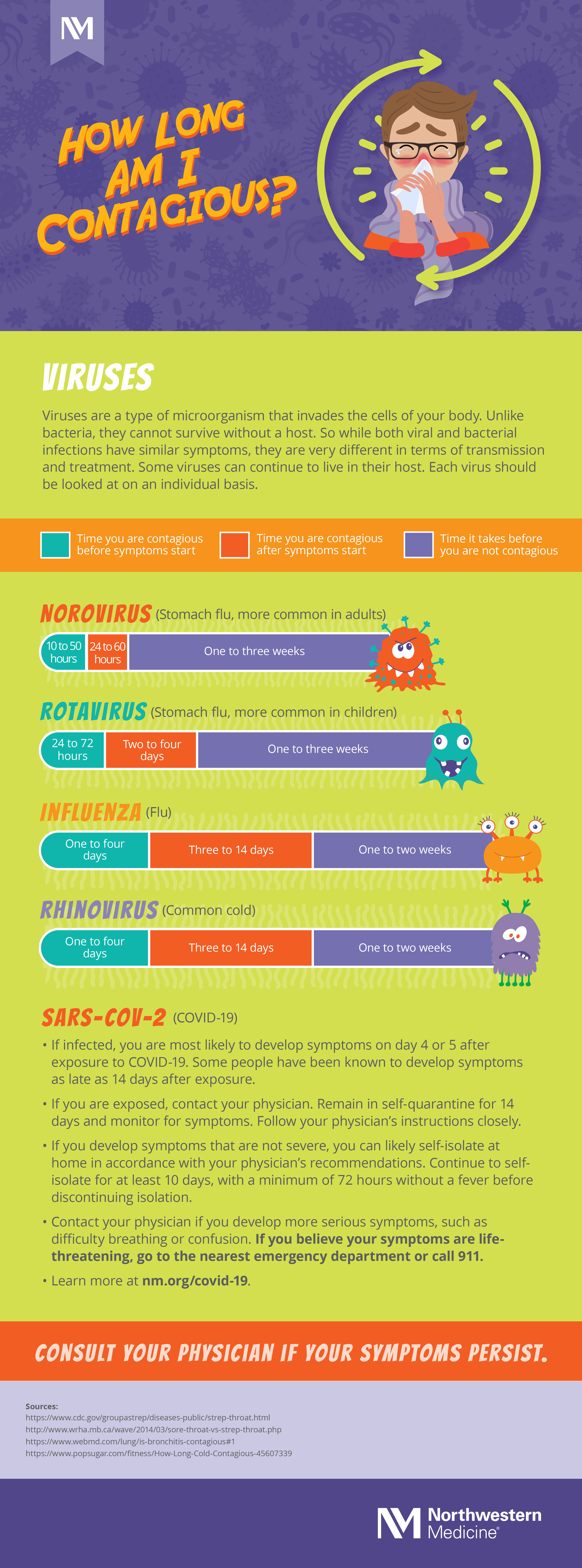 How Long Am I Contagious Infographic Northwestern Medicine
How Long Am I Contagious Infographic Northwestern Medicine
 Is Presymptomatic Spread A Major Contributor To Covid 19 Transmission Nature Medicine
Is Presymptomatic Spread A Major Contributor To Covid 19 Transmission Nature Medicine
 Charting A Coronavirus Infection The New York Times
Charting A Coronavirus Infection The New York Times
Comments
Post a Comment